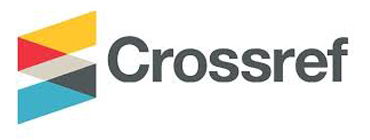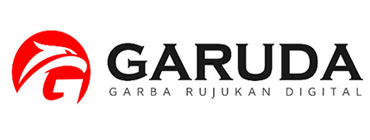THE EFFECTIVENESS OF INFORMATION SERVICES USING THE PROJECT BASE LEARNING METHOD TO STRENGTHEN THE PROFILE OF PANCASILA STUDENTS IN THE IMPLEMENTATION OF THE INDEPENDENT CURRICULUM AT SMP NEGERI 9 MEDAN
Abstract
This research aims to determine the profile of Pancasila students at SMP Negeri 9 Medan. The purpose of this research is to describe the differences in scores in character development through the experimental group Pancasila student profile program before and after being given information service treatment using the Project Base Learning method. Meanwhile, the control group was given treatment before and after being treated with information services without the project based learning method. This research is quantitative research with an experimental research type. The object of this research was class VIII students at SMP Negeri 9 Medan. The data collection technique in this research used a questionnaire for students with a Pancasila student profile. The results of this research show that students who have a low Pancasila student profile have bad character and are difficult to be accepted by society. The analysis test results used the Wilcoxon Signed Ranks Test and the Kolmogorov Smirnov Two Independent Samples analysis test. Thus, based on the results of research conducted, among others: (1) there are significant differences in character development through the Pancasila student profile program for students in the experimental group before (pretest) and after (posttest) with information services using the Project Base Learning method. (2) there is a significant difference in character development through the Pancasila student profile program for students in the control group before (pretest) and after (posttest) with information services. (3) there is a significant difference in character development through the Pancasila student profile program for students in the experimental group and the control group who were given treatment.
Full Text:
PDFReferences
Abdul Rahman Shaleh & Wahab, Muhbib Abdul. (2003). Psychology A Introduction to Islamic Perspective. Jakarta: Kencana.
Amti, Erman and Prayitno. (2004). Group guidance and counseling services. Padang: Department of Guidance and Counseling, Faculty of Education Padang State University.
Budi, Purwoko. (2008). Organization and Management of Guidance Counseling. Surabaya: Unesa University Press.
David, Abu. (2010). Personal guidance.http//abudaud2010.blogspot.com (accessed on September 27, 2013).
et al, Prayitno. 2004. Basics of Guidance and Counseling. Jakarta: Rineka Create.
Republic of Indonesia Department of Education and Culture. (2003). Big Indonesian Dictionary, Jakarta: Balai Pustaka.
Djaali. (2009). Educational Psychology. Jakarta: Bumi Literacy.
Faiz, A., Parhan, M., & Ananda, R. (2022). New Paradigm in Prototype Curriculum. Educative: Journal of Educational Sciences, 4(1), 1544-1550.
Fatmawati, R., & Rozin, M. (2018). Increasing student interest in learning by using interactive lecture methods. Journal Focus Action of Research Mathematics (Factor M), 1(1), 43-56.
Fitri, E., Ifdil, I., & Neviyarni, S. (2016). The effectiveness of information services using the blended learning method to increase learning motivation. Journal of Educational Psychology and Counseling: Journal of Educational Psychology and Counseling Guidance Studies, 2(2), 84-92.
Hallen. A. (2005). Guidance and counseling. Jakarta: Ciputan Press.
Hasbullah. (1999). Basics of Education. Jakarta:PT. Raja Grafindo Persada.
Hasudungan, A. N., & Abidin, N. F. (2020). Independent Learning: Forming The Pancasila Learner Through Historical Learning In Senior High School. In Social, Humanities, and Educational Studies (SHEs): Conference Series (Vol. 3, No. 2, pp. 34-42).
Hibama S. Rahman (2002). Basic Concepts of Early Childhood Education. Yogyakarta: Galah.
Ifdil. (2008). Information Services (L2). http://Konselingindonesia.com (accessed 18 September 2022).
Irdayanti, Lieska Sukma. (2018). Level of Students' Mathematical Critical Thinking Ability at SMPN 1 Kedungwaru Through Providing Open-Ended Questions on Pythagorean Theorem Material for the 2017/2018 Academic Year. Thesis. Tulungagung: Department of Mathematics Tadris IAIN Tulungagung.
Iskandar. (2010). Educational and Social Research Methodology. Jakarta: Echo Persada Press.
Ismail, S., Suhana, S., & Zakiah, Q. Y. (2020). Analysis of policies to strengthen character education in realizing Pancasila students in schools. Journal of Educational Management and Social Sciences, 2(1), 76-84.
Indonesia, P. R. (2003). Law of the Republic of Indonesia number 20 of 2003 concerning the national education system.
Culture, R. D. T., & Culture, R. D. T. (2022). Regulation of the Minister of Education, Culture, Research and Technology of the Republic of Indonesia Number 13 of 2022 concerning Amendments to Regulation of the Minister of Education and Culture Number 22 of 2020 concerning the Strategic Plan of the Ministry of Education and Culture for 2020-2024.
Minister of Education and Culture Decree No. 56 of 2022 Guidelines for Implementing Curriculum in the Context of Learning Recovery (Independent Curriculum) as a complement to the previous curriculum.
Lucas, G. (2005). George Lucas educational foundation. Retrieved March, 20, 2005.
Moeslichatoen. 2004. Teaching Methods in Kindergarten. Jakarta: PT Rineka Cipta.
Muliawan, Superior Service. (2016). 45 Spectacular Learning Models. Yogyakarta: Ar Ruzz.
Mugiarso, H, et al. (2004). Guidance and counseling. Semarang: Semarang State University Press.
Muhibbin Shah. (2005). Learning Psychology. Jakarta: Raja Grafindo Persada.
Munandar, U. (2012). Developing the Creativity of Gifted Children. Jakarta: Rineka Citra.
Nurasiah, I., Marini, A., Nafiah, M., & Rachmawati, N. (2022). The value of local wisdom: a new paradigm project for a driving school program to realize the Pancasila student profile. Basicedu Journal, 6(3), 3639-3648.
Nurihsan, Achmad Juntika. (2007). Guidance & Counseling Services Strategy.
Bandung: Refika Aditama.
Prayitno & Amti, Erman. (2004). BK Basics. Jakarta: Rineka Cipta.
Prayitno. (2012). Types of Counseling Support Services and Activities. Padang: Department of Guidance and Counseling, Faculty of Education, Padang State University.
Prayitno et al. (2004). Guide Series for Implementing School Counseling Guidance
(SPPBKS) volume III for SMU. Padang: UNP.
Riduwan & Sunarto. (2011). Introduction to Statistics for Educational, Social, Economic, Communication and Business Research. Bandung: Alphabeta.
Ristiani, E., Wardana, M. Y. S., & Purnamasari, I. (2022). Analysis of Pancasila Student Profile Values in the G30S/PKI Film for Elementary School Children. Educational Pen, 1(1), 22-26.
Sudarsono. (1997). Counseling dictionary / Sudarsono. Jakarta: Rineka Cipta.
Sugiarta, I. M., Mardana, I. B. P., & Adiarta, A. (2019). Ki Hajar Dewantara's Educational Philosophy (Eastern Figure). Indonesian Journal of Philosophy, 2(3), 124-136.
Suharsimi, Arikunto. (1990). Research Management. Jakarta: Rineka Cipta.
_________________. (2002). Research Procedures An Approach and Practice. Jakarta: Rineka Cipta.
Supriatna, Y. (2022). The Role of Civics Subjects in Improving Character Education Ukarta: Andi
Zarnuji, I. 2019. Ta'lim Al-Muta'allim Fi Thariq At'ta'allum. Solo: Aqwa
Refbacks
- There are currently no refbacks.

This work is licensed under a Creative Commons Attribution-NonCommercial-ShareAlike 4.0 International License.
INDEXING
Bright Vision by UIN Sumatera Utara Medan is licensed under a Creative Commons Attribution-NonCommercial-ShareAlike 4.0 International License.
Based on a work at http://jurnaltarbiyah.uinsu.ac.id/index.php/brightvision.









